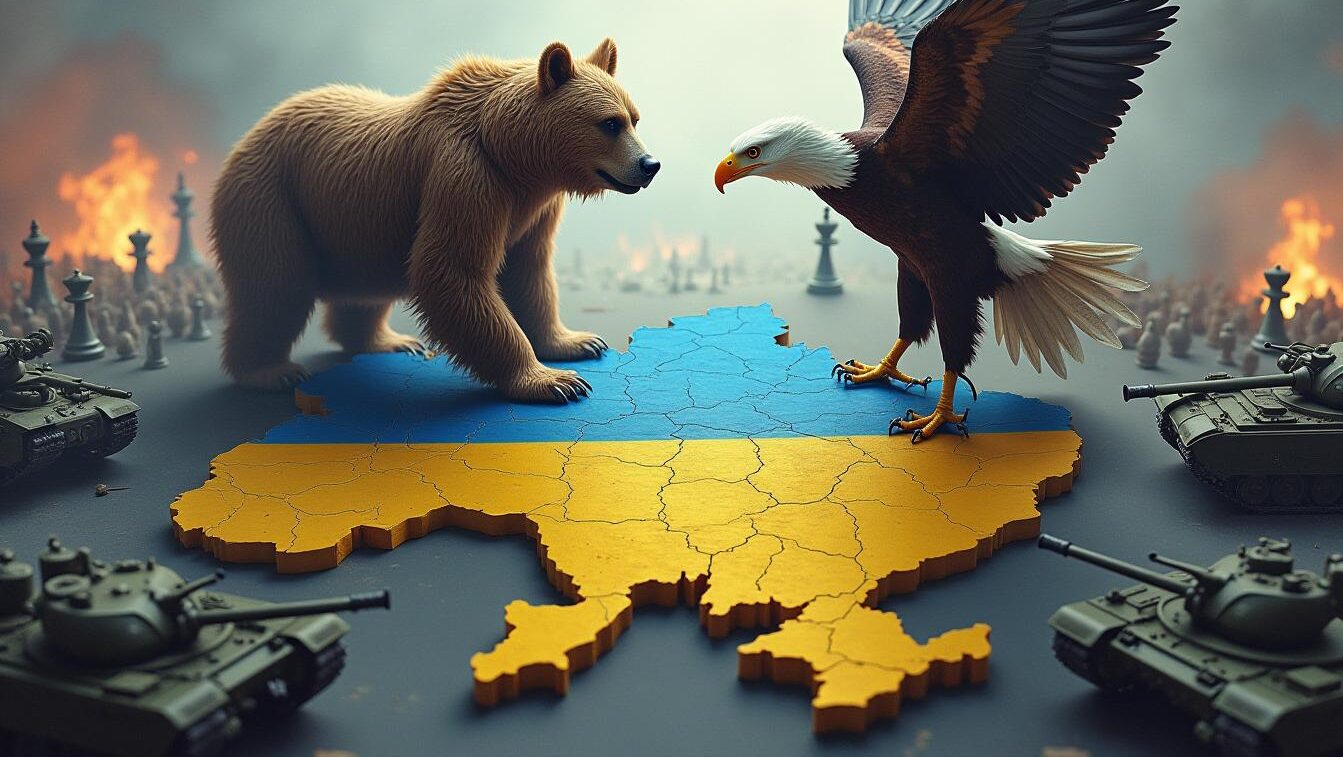Russian-Western Escalation: A Dangerous Game With Unpredictable Results
Okaz, Saudi Arabia, November 28
Since the election of former US President Donald Trump, the world has experienced significant geopolitical shifts, with each party striving to establish new realities on the ground as leverage in ongoing conflicts. Nowhere is this more evident than in Ukraine, where tensions between Russia and the West have turned the country into a stage for political and military posturing. The involved factions are taking provocative actions, reflecting their desire to alter the balance of power and create conditions favorable for future negotiations. The Russian side perceives the period leading up to January 20, when the new Trump administration officially assumes power, as a strategic window to secure military advantages that may underpin any forthcoming agreement. Russian President Vladimir Putin has not disguised this approach, openly affirming it during a phone call with the German chancellor—the first such communication in over two years. This posture was underscored by a fierce assault launched by Russian forces on eastern Ukraine, amid Western accusations of Moscow bolstering its positions with North Korean troops, particularly in the Kursk region, controlled by Ukrainian forces. The Kursk region holds strategic importance in this conflict; Russian dominance there would weaken the Ukrainian position, depriving it of crucial negotiating leverage. Western powers, acutely aware of the significance of this point, quickly moved to supply Ukraine with advanced weaponry. The United States announced its support for targeting deep within Russia, further complicating the situation and heightening tensions. This Western escalation is part of broader efforts to curtail Russian influence in the region and prevent Moscow from achieving a long-term victory. In response, Russia’s reaction was predictable yet perilous, as Moscow threatened to resort to nuclear weapons if faced with defeat. Additionally, Russia showcased its hypersonic missile, the Oreshnik, which poses a formidable challenge to Western defense systems. These military displays serve as stark warnings aimed at deterring further Western escalation. Europe, not remaining passive, with France and Britain adopting a similar stance to the United States, authorized the use of home-produced weapons to target Russia’s interior, further aggravating the crisis and complicating the geopolitical landscape. The American decision to permit strikes deep inside Russia was more than a tactical maneuver; it carried explicit strategic implications. This decision was met with approval in European circles, as it could complicate the Trump administration’s potential attempts to negotiate a settlement with Russia, thwarting a Russian triumph that might prove costly for Europe. Consequently, this development has infused the situation with additional tension, escalating political and military complexities among the disputing parties. The prospect of this conflict escalating into a full-scale confrontation increasingly alarms international observers, particularly given the substantial military capabilities of both sides. With each escalation, the profound mistrust between the parties becomes more apparent. This conflict transcends a mere struggle for regional influence; it is, at its core, a global standoff between two competing political ideologies. The ongoing escalation prompts grave concerns about the future of international peace and security, raising questions about the potential for a return to the negotiating table amidst such a volatile atmosphere. Military maneuvers and incendiary rhetoric from both sides suggest a situation spiraling toward uncontrollable escalation. The current climate underscores the pressing need for political rationality and restraint. The world cannot afford to slip further into a large-scale conflict that could unleash unimaginable disasters upon humanity. If this aggressive trajectory persists, its consequences might reach beyond Ukraine and Russia to impact the entire global community. Thus, there is an urgent need for vigorous diplomatic initiatives and for wise voices to de-escalate tensions and avert further violence. International actors must recognize their responsibilities and work earnestly to prevent this conflict from escalating into a global catastrophe, considering its potentially catastrophic effects on all. —Rami Al-Khalifa Al-Ali (translated by Asaf Zilberfarb)
This holiday season, give to:
Truth and understanding
The Media Line's intrepid correspondents are in Israel, Gaza, Lebanon, Syria and Pakistan providing first-person reporting.
They all said they cover it.
We see it.
We report with just one agenda: the truth.



